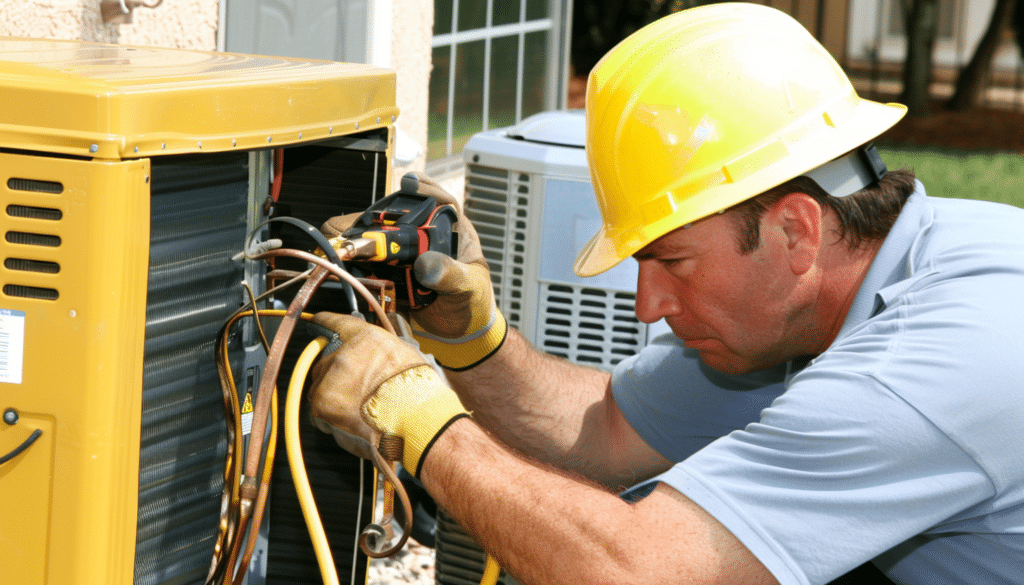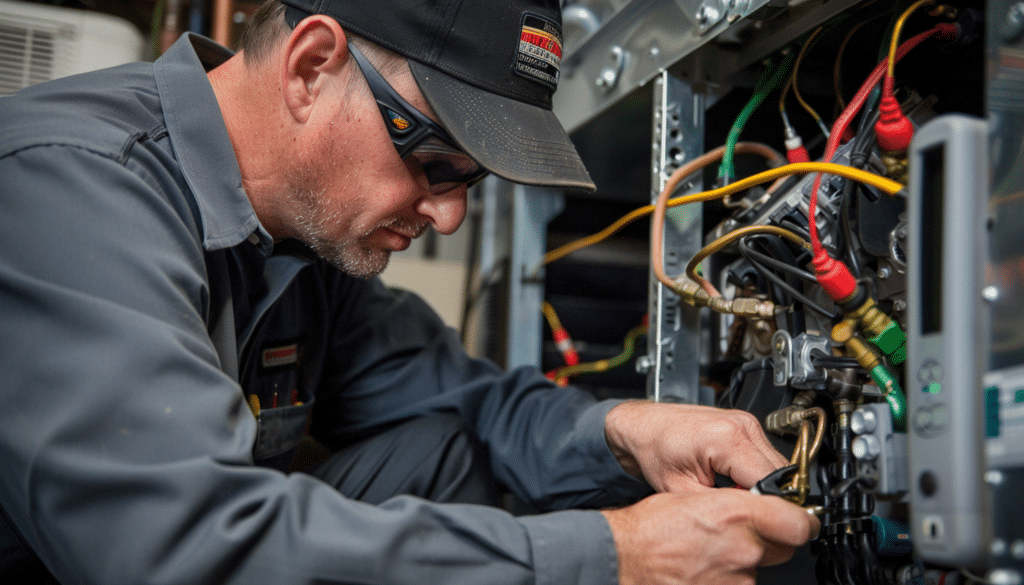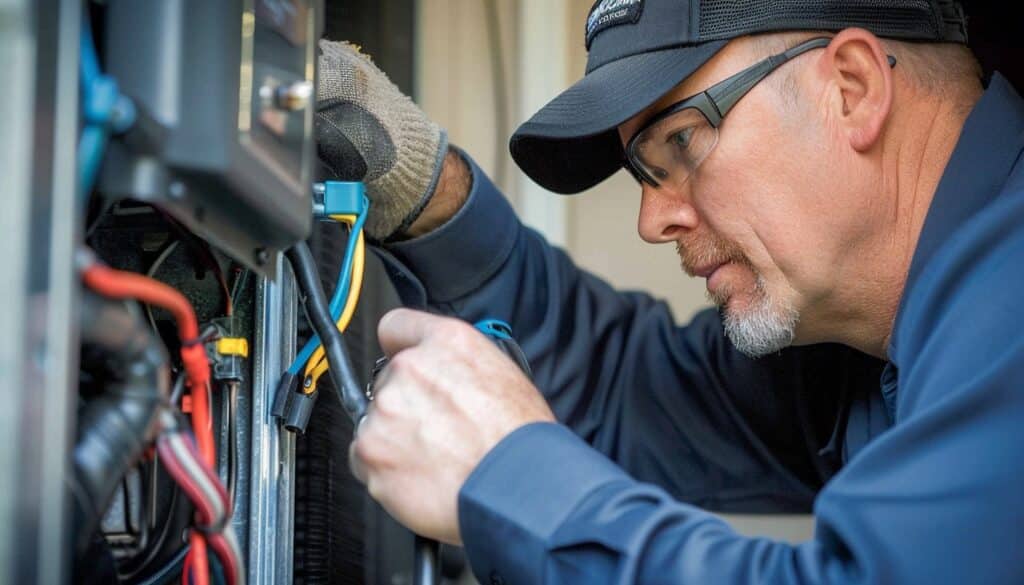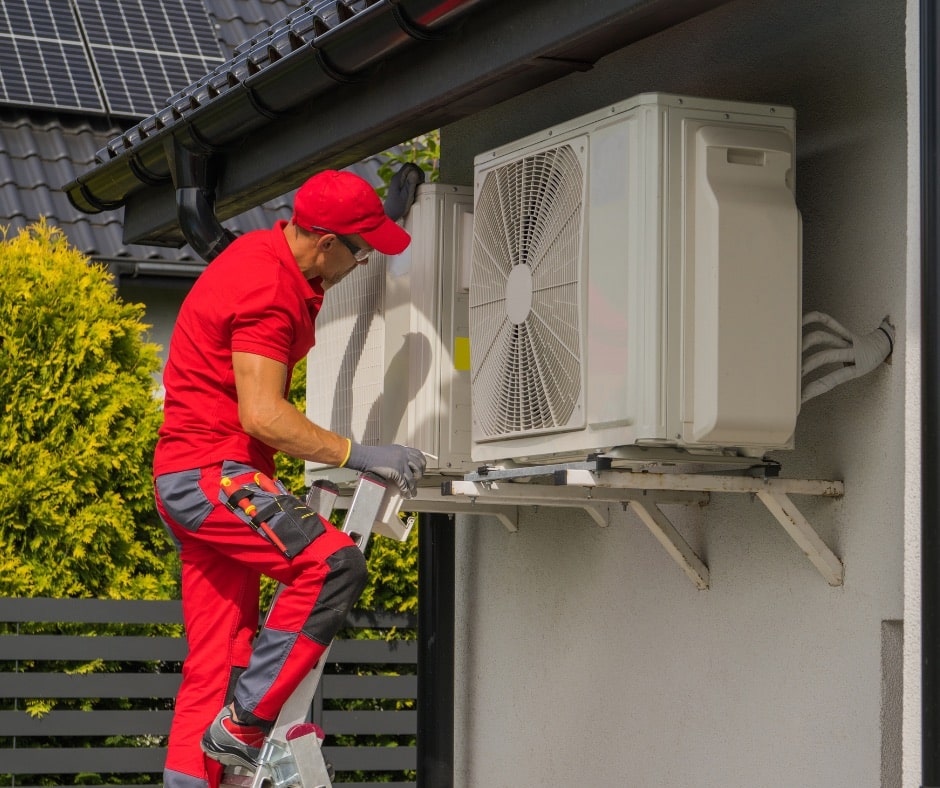Top Common HVAC Faults: A Homeowner’s Guide
Table of Contents
- Introduction
- Understanding Common HVAC Faults
- Dirty Filters
- Thermostat Issues
- Refrigerant Leaks
- Clogged Drains
- Sensor Problems
- Detailed Exploration of Each Fault
- Dirty Filters: The Airflow Blocker
- Thermostat Issues: The System Miscommunicator
- Refrigerant Leaks: The Cooling Saboteur
- Clogged Drains: The Flood Maker
- Sensor Problems: The Temperature Disruptor
- Preventive Measures for Common HVAC Faults
- Regular Maintenance
- Professional Inspections
- DIY Maintenance Tips
- When to Call a Professional
- Impact of Common HVAC Faults on System Efficiency
- FAQs
1. Introduction
As a homeowner, maintaining your HVAC (Heating, Ventilation, and Air Conditioning) system is crucial for ensuring year-round comfort. However, common HVAC faults can disrupt this comfort, leading to inefficiencies, higher energy bills, and costly repairs. Understanding these common issues can help you prevent them and know when it’s time to call in a professional.

2. Understanding Common HVAC Faults
Common HVAC Faults can occur for various reasons, ranging from simple issues like dirty filters to more complex problems like refrigerant leaks. Here, we’ll explore the most common HVAC faults every homeowner should be aware of.
Dirty Filters
One of the most common HVAC faults is a dirty air filter. Filters are designed to trap dust, dirt, and other particles, preventing them from entering your HVAC system. However, when these filters become clogged, they restrict airflow, causing the system to work harder and leading to a range of issues.
Thermostat Issues
Another frequent HVAC fault involves the thermostat, which controls the temperature of your home. Problems can arise when the thermostat is not calibrated correctly, has dead batteries, or is simply malfunctioning.
Refrigerant Leaks
Refrigerant is the substance that cools the air in your HVAC system. A leak in the refrigerant lines is a serious HVAC fault that can reduce the system’s efficiency and lead to higher energy bills.
Clogged Drains
The drain line in your HVAC system removes the condensation that forms during the cooling process. If this line becomes clogged, it can cause water damage and mold growth, representing another common HVAC fault.
Sensor Problems
In some HVAC systems, the thermostat has a sensor that reads the air temperature inside the home. If this sensor is misaligned or malfunctioning, it can cause the system to cycle constantly or behave erratically, which is a typical HVAC fault.

3. Detailed Exploration of Each Fault
Now, let’s delve deeper into these common HVAC faults, exploring their causes, effects, and solutions.
Dirty Filters: The Airflow Blocker
- Cause: Over time, dust and debris accumulate in the air filters.
- Effect: Restricted airflow, increased strain on the HVAC system, higher energy consumption, and reduced indoor air quality.
- Solution: Replace or clean the filters regularly, typically every 1-3 months, depending on usage and filter type.
Why It Matters: Dirty filters can reduce your HVAC system’s efficiency by up to 15%, leading to higher energy bills and potential system failure if left unchecked.
Thermostat Issues: The System Miscommunicator
- Cause: Dead batteries, incorrect settings, or calibration issues.
- Effect: Inconsistent temperatures, the system turning on and off frequently, or not turning on at all.
- Solution: Check and replace batteries, ensure the thermostat is set correctly, and calibrate if necessary.
Why It Matters: A malfunctioning thermostat can lead to unnecessary wear and tear on your HVAC system, reducing its lifespan and increasing energy costs.
Refrigerant Leaks: The Cooling Saboteur
- Cause: Wear and tear on the refrigerant lines, corrosion, or improper installation.
- Effect: Reduced cooling capacity, longer cooling cycles, higher energy consumption, and potential system freeze-up.
- Solution: Professional repair is needed to fix leaks and recharge the refrigerant to the correct level.
Why It Matters: Refrigerant leaks not only reduce the efficiency of your system but can also cause environmental harm if not handled properly.
Clogged Drains: The Flood Maker
- Cause: Accumulation of dirt, dust, and debris in the drain line.
- Effect: Water leaks, potential mold growth, and damage to walls, ceilings, and floors.
- Solution: Regularly clean the drain line or have a professional service it during routine maintenance.
Why It Matters: Clogged drains can lead to significant water damage in your home, resulting in costly repairs and potential health hazards from mold growth.
Sensor Problems: The Temperature Disruptor
- Cause: Sensor misalignment, dirt buildup, or wiring issues.
- Effect: Incorrect temperature readings, system cycling on and off, or failure to reach the desired temperature.
- Solution: Ensure the sensor is properly aligned and clean or replace it if necessary.
Why It Matters: A faulty sensor can lead to an uncomfortable living environment and increased energy usage due to improper system cycling.

4. Preventive Measures for Common HVAC Faults
Preventing common HVAC faults is often a matter of regular maintenance and timely inspections. Here are some tips to keep your system running smoothly.
Regular Maintenance
- Schedule Annual Inspections: Have your HVAC system inspected by a professional at least once a year to catch potential issues before they become major problems.
- Replace Filters: As mentioned, replacing or cleaning filters every 1-3 months is crucial for maintaining airflow and system efficiency.
- Clean Ductwork: Ensure your ductwork is clean and free of obstructions that could impede airflow.
Professional Inspections
- Check Refrigerant Levels: Low refrigerant levels can indicate a leak, which requires professional attention.
- Inspect Thermostat Functionality: Regularly check your thermostat to ensure it’s functioning correctly and is calibrated properly.
- Examine Electrical Connections: Faulty wiring or connections can lead to serious HVAC faults and even pose a fire hazard.
DIY Maintenance Tips
- Clear Debris Around Outdoor Units: Ensure the area around your outdoor HVAC units is clear of debris, leaves, and other obstructions.
- Monitor System Performance: Pay attention to how your system is running. If you notice anything unusual, such as strange noises or insufficient heating/cooling, it may be time for a professional check-up.
5. When to Call a Professional
While regular maintenance can prevent many common HVAC faults, there are times when professional intervention is necessary.
- Strange Noises: Unusual sounds such as grinding, squealing, or banging could indicate a serious issue.
- Inconsistent Temperatures: If certain areas of your home are consistently warmer or cooler than others, it could be a sign of a malfunctioning system.
- Rising Energy Bills: A sudden spike in your energy bills without a corresponding increase in usage could signal an HVAC fault.
- Frequent Cycling: If your system turns on and off frequently, it might be struggling to maintain the desired temperature, indicating a potential fault.

6. Impact of Common HVAC Faults on System Efficiency
The efficiency of your HVAC system is directly tied to its condition. Common HVAC faults can significantly reduce efficiency, leading to higher energy bills and a shorter lifespan for your system.
- Reduced Airflow: Issues like dirty filters and clogged ducts restrict airflow, making your system work harder to maintain the desired temperature.
- Increased Wear and Tear: Problems like refrigerant leaks and faulty thermostats cause the system to run longer and more frequently, leading to increased wear and tear.
- Higher Energy Consumption: As the system struggles to overcome these faults, it consumes more energy, driving up your utility bills.
7. FAQs
Q: How often should I replace my HVAC filters?
A: Generally, you should replace or clean your filters every 1-3 months. However, if you have pets, live in a dusty area, or run your HVAC system frequently, more frequent replacements may be necessary.
Q: What should I do if my HVAC system is leaking water?
A: Water leaks are often caused by clogged drain lines. Try to clear the blockage yourself, but if the problem persists, it’s best to call a professional to inspect the system.
Q: How can I tell if my thermostat is malfunctioning?
A: Signs of a malfunctioning thermostat include inconsistent temperatures, frequent system cycling, or the HVAC system not turning on. Replacing the batteries or recalibrating the thermostat may help, but persistent issues require professional assistance.
Q: What are the signs of a refrigerant leak?
A: Common signs include reduced cooling capacity, longer cooling cycles, ice formation on the coils, and hissing sounds from the system. A professional should address refrigerant leaks.
Q: Is it necessary to have my HVAC system serviced annually?
A: Yes, annual servicing is essential for catching potential issues early, ensuring system efficiency, and extending the lifespan of your HVAC system.
Conclusion
Understanding and addressing common HVAC faults is essential for maintaining a comfortable and energy-efficient home. Regular maintenance, combined with professional inspections, can help prevent these issues, saving you time, money, and stress in the long run. If you encounter any of these faults, don’t hesitate to contact a professional HVAC service provider like Wintri to ensure your system is running at its best.

